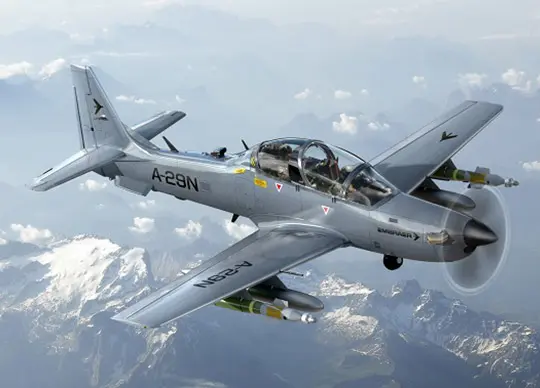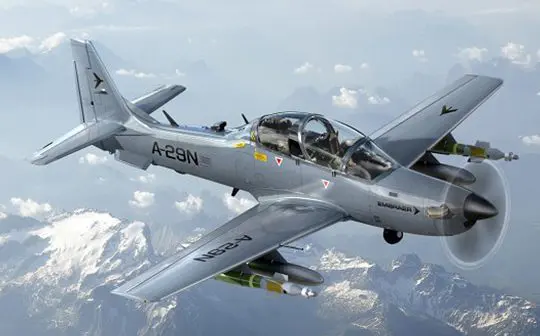
Embraer has announced that during LAAD Defence & Security 2023, it has launched the A-29 Super Tucano aircraft, light attack aircraft, armed reconnaissance, and advanced training, in the configuration of NATO (North Atlantic Treaty Organization), with an initial focus on meeting the needs of nations in Europe.
The new version of the aircraft, the A-29N, will include equipment and features to fulfill NATO’s operational requirements, such as a new datalink and single-pilot operation.
The company says these features will further increase the aircraft’s employment possibilities, allowing, for example, its use in JTAC (Joint Terminal Attack Controller) training missions. Training devices will also be upgraded to the world’s most demanding standards, including virtual, augmented, and mixed reality.
“This is a new stage in the operational life of the A-29 Super Tucano,” said Bosco da Costa Junior, President and CEO of Embraer Defense and Security. “We see many application possibilities for the A-29N at the moment. Several European countries have shown interest in specific aircraft capabilities that we have now introduced with this version.”
With more than 260 units delivered worldwide, the aircraft has been selected by more than 15 air forces worldwide, including the United States Air Force (USAF).
Developed as a highly versatile aircraft, the A-29 Super Tucano can perform a broad range of missions, including light attack, aerial surveillance and interception, and counterinsurgency. The A-29 is rugged and versatile, operating from remote and unpaved runways on forward deployed operational bases with little support, all with low operating costs and high availability (above 90%).
In addition to combat roles, the aircraft is widely used as an advanced trainer. Its ability to simulate combat missions and upload and download flight data has made it a highly effective training platform. As a real multi-mission aircraft, the A-29 has the flexibility to provide air forces with a single platform for light attack, armed reconnaissance, close air support, and advanced training, thus optimizing their fleets.
It is equipped with various sensors and weapons, including an electro-optical/infrared system with laser designator, night vision goggles, secure voice communications, and a data-link package.





